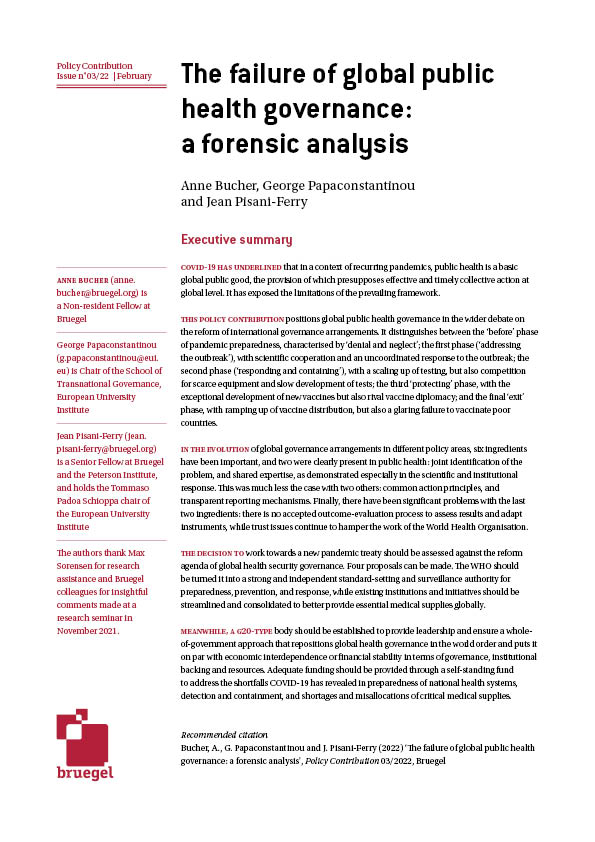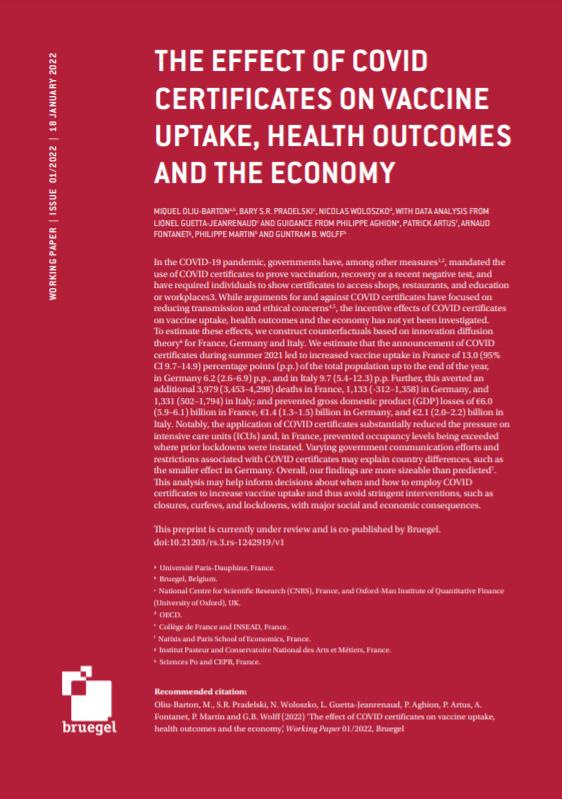Opinion
What if the rest of Europe follows Italy’s coronavirus fate?
The silence from Brussels could be as damaging as the silence on Italian streets
This opinion piece was originally published in The Guardian, Le Figaro and Expresso.
The silence. That’s what struck me most hauntingly on the first morning of our quarantine in Milan. A surreal silence that reminded me of the deserted streets of Wuhan which we saw from the safe distance of TV just a few weeks ago. Back then the Chinese city at the centre of China’s coronavirus epidemic appeared to me like the set of a science fiction movie. But now it felt like I was being sucked into the same movie. With every breath we were living the dread and anxiety spread by the invisible menace of Covid-19.
A couple of days on, things feel different. Fear has morphed into an urgent sense of the responsibility to preserve life. Many of us share the intuition that locking down the country is the right thing to do now, to protect others, especially the most vulnerable. When a virus has a daily death toll of a hundred people in your country, that sense of responsibility becomes overwhelming.
Coronavirus has been swift and ferocious in Italy. In less than 20 days, the number of confirmed cases has skyrocketed to more than 9,000 while the number of deaths has surpassed 450: the largest outside China.
This is terrifying when we consider the most obvious political and social reality: that a democracy cannot fight a health threat with the same draconian measures that an autocracy can impose. To stem the spread of coronavirus, China put 58 million people under martial law, with ordinary citizens basically under house arrest. The state used electronic surveillance measures to police the lockdown. This is before you consider what it must have taken to complete the construction of emergency hospitals in a week. In any democracy such powers in the hands of the state, luckily, remain unthinkable.
But, in what President Giuseppe Conte has called our “darkest hour”, Italy has had to quickly find a way to confront a similar existential threat. With no precedent in the western world, Italy is now attempting, as a democracy, to do three extraordinarily difficult things – apply containment measures to the spread of the virus, reinforce its health system and manage the socio-economic fallout. Whether or not it succeeds could perhaps provide useful lessons for other countries if they find themselves in the same situation over the next weeks.
On containment, Italy is attempting to enforce a nationwide lockdown. After having first put only the centres of the outbreak into mandatory quarantine and after having successively widened the measures to most of the country’s north, the government has now extended internal travel restrictions to the entire country, in effect restricting the movements of 60 million people. If it succeeds it will be proof that a democracy can be strong enough to introduce extraordinary measures with its most important tool: the trust of its citizens.
On the reinforcement of the health system, Italy shows that the key priority now for every affected country is to quickly expand intensive care capacity. As I write, helicopters are moving patients with Covid-19 from hospitals in Lombardy to other regions. The reason is simple: a lack of intensive care beds. Lombardy has 900 and regional authorities expect that by the end of March about 3,000 patients will need such treatment. Titanic efforts are going into setting up new intensive care beds, even in hospital corridors, but this might not be sufficient.
So, in a race against time, neighbouring regions are emptying their hospitals of patients who do not require urgent care. Lombardy is well known for having one of the best health systems in Europe. The dire situation it faces shows that many countries could end up in the same, if not even worse, situation. This is why all countries should prepare accordingly.
On the socio-economic front, Italy’s experience shows the critical need for social insurance support to all families and businesses affected by the outbreak. Scaling up national redundancy funds to ensure companies can maintain their workers during the emergency, providing lump-sum payments to the self employed who are not covered by social insurance systems, putting in place measures to ensure small and medium enterprises can remain open and providing vouchers for babysitters to support families as schools close, are all measures that should be quickly adopted by countries to mitigate the virus’s socio-economic fallout.
Italy might just have found itself a couple of weeks ahead of the curve in the coronavirus outbreak outside China. Other European countries might soon experience a similar challenge. This is also why a coordinated response at the EU level is urgent. Only by acting together can EU countries maximise their efforts in limiting the virus’s spread and in limiting its socio-economic impacts. Joint action will be required once the emergency is over to relaunch our economies after this shock.
There is a political case for joint EU action over this emergency. Such situations profoundly shape the collective memory of a nation. For instance, in Italy we still celebrate the “mud angels” that provided help in Florence during the 1966 flood. If we want to show that the EU is about people and close to people, then solidarity is required. The silence heard from Brussels here in Italy could prove to be, in the long term, as damaging as the one the virus has brought to our empty streets. Let’s face this unprecedented challenge all together, as a collective European family.
Republishing and referencing
Bruegel considers itself a public good and takes no institutional standpoint.
Due to copyright agreements we ask that you kindly email request to republish opinions that have appeared in print to [email protected].















